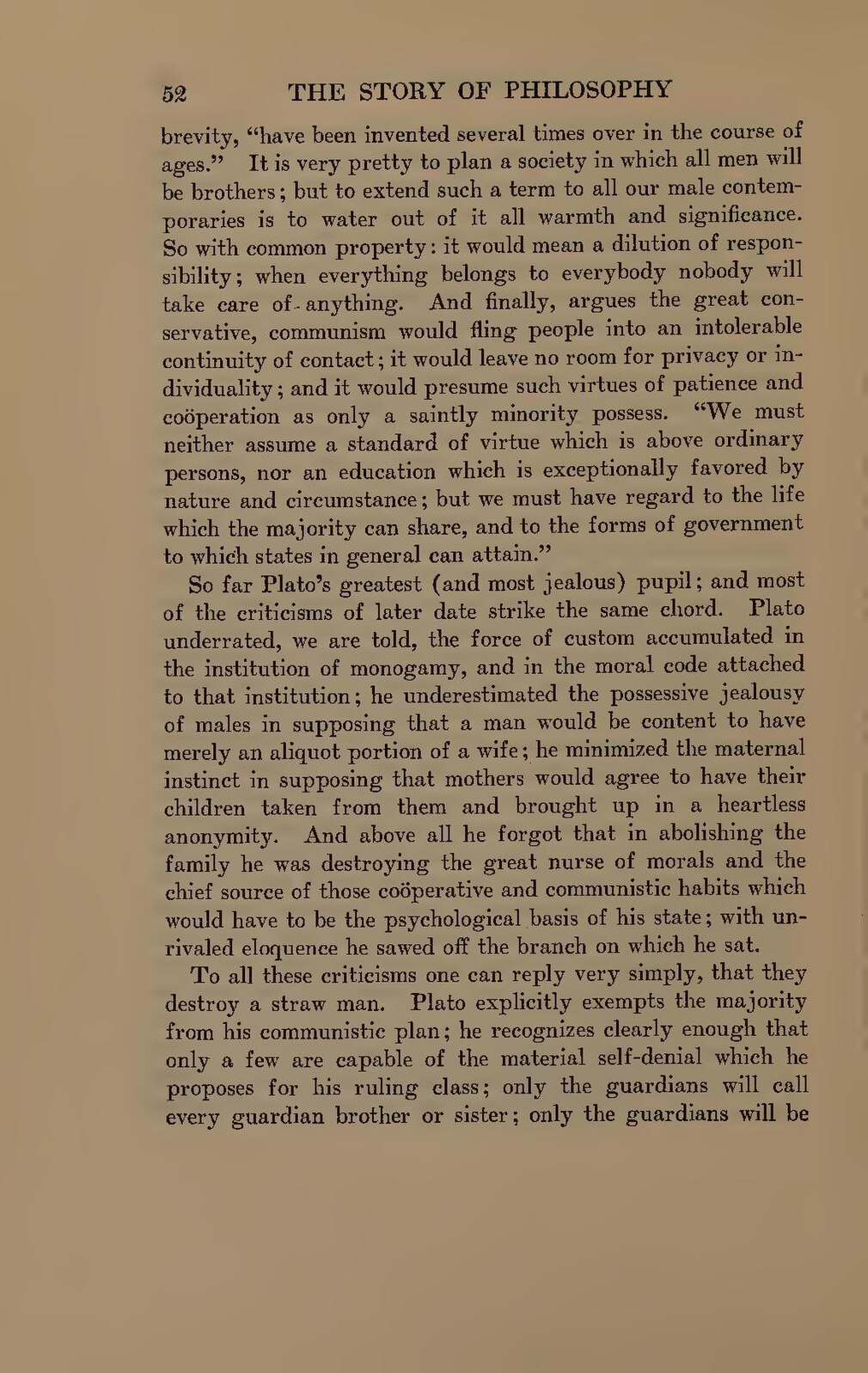brevity, "have been invented several times over in the course of ages." It is very pretty to plan a society in which all men will be brothers; but to extend such a term to all our male contem- poraries is to water out of it all warmth and significance. So with common property: it would mean a dilution of respon- sibility; when everything belongs to everybody nobody will take care of anything. And finally, argues the great con- servative, communism would fling people into an intolerable continuity of contact; it would leave no room for privacy or in- dividuality; and it would presume such virtues of patience and coöperation as only a saintly minority possess. "We must neither assume a standard of virtue which is above ordinary persons, nor an education which is exceptionally favored by nature and circumstance; but we must have regard to the life which the majority can share, and to the forms of to which states in general can attain." government
So far Plato's greatest (and most jealous) pupil; and most of the criticisms of later date strike the same chord. Plato underrated, we are told, the force of custom accumulated in the institution of monogamy, and in the moral code attached to that institution; he underestimated the possessive jealousy of males in supposing that a man would be content to have merely an aliquot portion of a wife; he minimized the maternal instinct in supposing that mothers would agree to have their children taken from them and brought up in a heartless anonymity. And above all he forgot that in abolishing the family he was destroying the great nurse of morals and the chief source of those coöperative and communistic habits which would have to be the psychological basis of his state; with un- rivaled eloquence he sawed off the branch on which he sat.
To all these criticisms one can reply very simply, that they destroy a straw man. Plato explicitly exempts the majority from his communistic plan; he recognizes clearly enough that only a few are capable of the material self-denial which he proposes for his ruling class; only the guardians will call every guardian brother or sister; only the guardians will be
